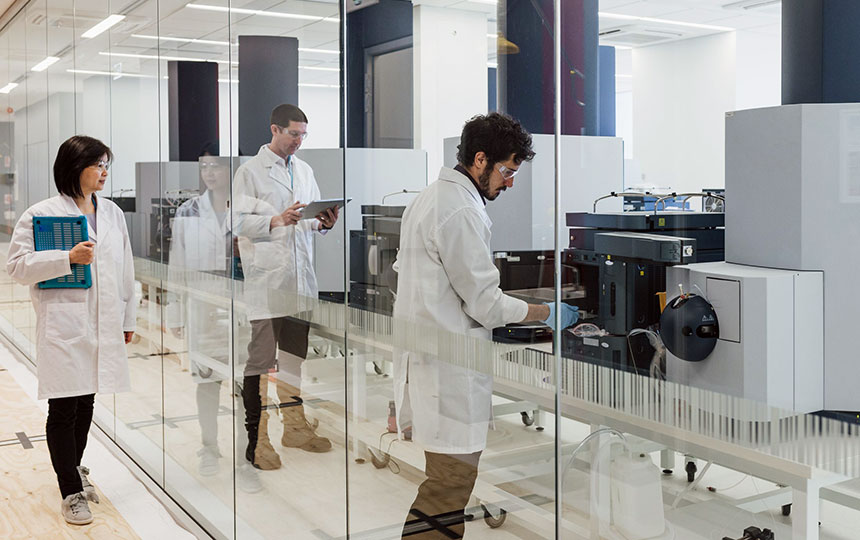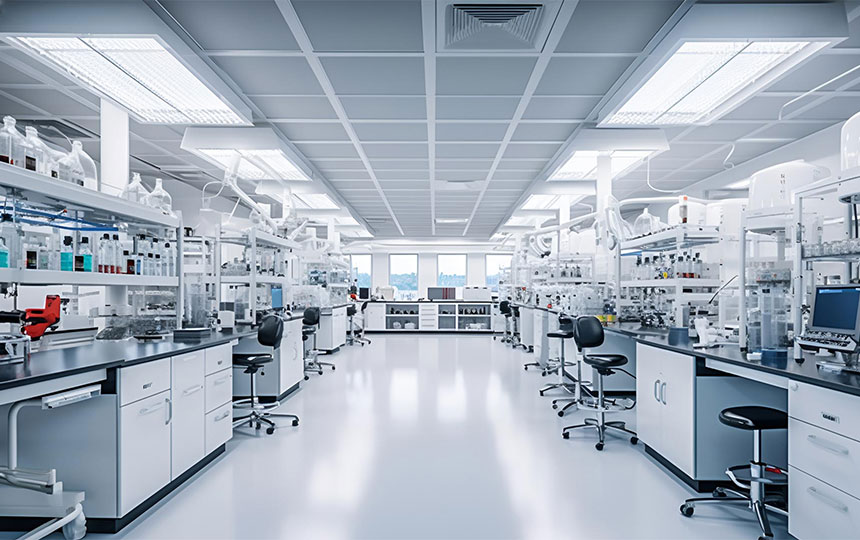Laboratories are the backbone of innovation in industries like life sciences, biotechnology, and pharmaceuticals. The design of these spaces can significantly impact research outcomes, collaboration, and overall efficiency. In New Jersey, a hub for scientific discovery and technological advancements, choosing between an open vs closed labs is a critical decision for organizations. The debate surrounding open lab configuration versus traditional closed labs revolves around key factors such as collaboration, privacy, and adaptability. Understanding the nuances of efficient lab design in New Jersey can help businesses optimize their facilities to achieve maximum productivity.
Understanding Open Lab Configuration NJ
Open labs are designed to promote collaboration and flexibility. They typically feature large, open spaces with minimal physical barriers between workstations, encouraging scientists and researchers to communicate and share ideas. Open lab configuration NJ is particularly well-suited for interdisciplinary research, where professionals from different fields need to work together closely.
In New Jersey, where the life sciences and biotech industries thrive, open labs are becoming increasingly popular. These spaces facilitate a culture of teamwork and innovation, essential for addressing complex scientific challenges. The lack of walls and partitions allows for better utilization of space, making open labs a cost-effective option for many organizations. Additionally, the adaptability of open labs supports evolving research needs, enabling companies to reconfigure their spaces as projects change or expand.<
Advantages of Open Labs in New Jersey
One of the main benefits of open lab configuration NJ is enhanced collaboration. In an open environment, researchers can easily interact, share insights, and solve problems collectively. This dynamic is especially valuable in fast-paced industries like biotechnology and pharmaceuticals, where breakthroughs often result from interdisciplinary cooperation.
Open labs also offer greater flexibility compared to traditional closed setups. As research priorities shift, open spaces can be quickly adapted to accommodate new teams, equipment, or experiments. This adaptability is a key component of efficient lab design New Jersey, where organizations must remain agile to stay competitive.
Another advantage of open labs is the cost savings associated with their construction and maintenance. The absence of walls and partitions reduces building expenses, while shared resources like fume hoods and workstations lower operational costs. For startups and smaller companies, these savings can be a significant factor in choosing an open lab design.
Exploring Closed Labs and Their Benefits
While open labs have gained popularity, closed labs remain a viable option for many organizations. These spaces are characterized by separate, enclosed work areas designed to prioritize privacy, safety, and specialized research needs. Closed labs are particularly well-suited for projects that require strict containment protocols or involve sensitive intellectual property.
Efficient lab design in New Jersey often incorporates closed labs for companies working in areas like chemical synthesis, hazardous materials research, or proprietary drug development. These labs provide controlled environments that minimize the risk of contamination and ensure compliance with safety regulations.
Another advantage of closed labs is the ability to focus on specific tasks without distractions. In industries where precision and concentration are paramount, having a dedicated, private space can enhance productivity. Additionally, closed labs offer better soundproofing, which is essential for work requiring detailed data analysis or equipment calibration.

Blancing Collaboration and Privacy in NJ Labs
The choice between open and closed labs does not have to be binary. Many organizations in New Jersey are adopting hybrid designs that combine the best features of both configurations. These efficient lab designs New Jersey allow companies to create a collaborative atmosphere while providing enclosed spaces for specialized tasks.
For instance, a hybrid lab might feature an open area for general research and team discussions, complemented by closed rooms for experiments requiring controlled conditions. This approach ensures that researchers can easily collaborate while still having access to private workspaces when needed. Hybrid designs are particularly popular in lab clusters across New Jersey, where companies aim to maximize the functionality of their spaces.
Key Considerations for Efficient Lab Design New Jersey
When designing a lab, it is essential to align the layout with the organization’s goals and research priorities. For companies considering open lab configuration NJ, factors such as team size, project complexity, and budget must be taken into account. Similarly, businesses opting for closed labs should evaluate their safety requirements, confidentiality needs, and long-term scalability.
Another critical consideration is the integration of advanced technologies. Efficient lab design New Jersey often includes features like modular workstations, IoT-enabled devices, and energy-efficient systems. These innovations not only enhance productivity but also reduce operational costs, making them a valuable addition to any lab setup.
Sustainability is another factor influencing lab design in New Jersey. With growing emphasis on green building practices, many labs are incorporating energy-efficient lighting, HVAC systems, and waste management solutions. These features align with global sustainability goals and contribute to long-term cost savings.
The Role of Location in Lab Efficiency
In New Jersey, the location of a lab can significantly impact its efficiency and success. Proximity to academic institutions, industry partners, and transportation networks is crucial for facilitating collaboration and ensuring timely delivery of supplies. Open lab configuration NJ is particularly effective in lab clusters where researchers from multiple organizations work together.
Choosing a location that supports efficient lab design New Jersey also means considering factors like access to utilities, zoning regulations, and community resources. New Jersey’s extensive infrastructure and business-friendly policies make it an ideal destination for companies seeking high-performance lab spaces.
Partner with Commercialrebroker for Your Lab Space Needs
At commercialrebroker.com, we specialize in helping businesses find lab spaces that align with their operational goals and research requirements. Whether you’re looking for an open lab configuration NJ or a hybrid setup that combines the best of both worlds, our team is here to guide you every step of the way.
With our deep knowledge of the New Jersey market and a wide network of properties, we can connect you with efficient lab design New Jersey solutions that maximize productivity and innovation. Contact us today to explore your options and find the perfect lab space for your business.

